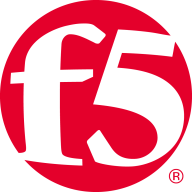

NGINX App Protect and Check Point CloudGuard WAF are leading competitors in the web application firewall category. Between the two, Check Point CloudGuard WAF appears to have the upper hand due to its advanced threat prevention features and seamless cloud integration.
Features: NGINX App Protect excels with flexible open-source functionality, robust reverse proxy capabilities, and comprehensive traffic management, emphasizing security with HTTP session control and bot protection. Check Point CloudGuard WAF offers superior threat prevention through an Intrusion Prevention System, powerful AI integration, and efficient protection of APIs with minimal false positives.
Room for Improvement: NGINX App Protect could enhance its support infrastructure, improve configuration flexibility, and better API exposure. Price adjustments are also suggested. Check Point CloudGuard WAF requires better documentation, real-time threat detection improvements, and a revamped pricing strategy, along with enhanced technical support and integration capabilities.
Ease of Deployment and Customer Service: NGINX App Protect is primarily deployed on-premises, with some usage in private and public clouds. Its support can be slow at times. Check Point CloudGuard WAF is versatile, deployed across various cloud environments and occasionally on-premises, showing improved support though with noted occasional response delays.
Pricing and ROI: NGINX App Protect is priced high, yet users find it justified due to its performance. ROI varies across organizations. Check Point CloudGuard WAF, while potentially costly, provides a satisfactory ROI with its comprehensive feature set, receiving mixed receptions based on organizational contexts.
When we are attacked, we can understand how important the solution is.
When you migrate to the cloud, it feels like saving 90% of your time.
Most of the operations happen in the background, so I do not spend much time on it.
They need to increase the number of people for 24/7 support.
They were responsive even before we committed to buying their solution.
I also received full technical support, especially during the implementation.
They were quick and efficient when we had issues.
If I need to scale, I open a Whatsapp group with the director and the team, and we quickly proceed to do so.
They have sufficient resources, and there are no challenges from a scalability perspective.
Check Point CloudGuard WAF's scalability is very good.
It is very stable.
It is very stable, never crashing or giving me an error that I can see.
I did not have any issues in the last three years during which I had more than ten critical services running on CloudGuard.
It is a quality solution, and I would rate its stability as eight out of ten.
The provider could improve by providing better guidance and support during the configuration process.
Future releases should include better bot mitigation, behavioral anomaly detection, compliance templates, advanced threat intel integration, and streamlined multi-cloud support to boost protection and usability.
A machine learning-based adaptive mode could help the WAF learn over time and auto-tune policies.
There was more information from F5 regarding hardware requirements and specifications to deploy the service.
It is more expensive than f5, where we purchased everything as bundles, and Check Point costs more, but it is worth the money.
It is less costly than Cloudflare, Fortinet, and other vendors.
I know that its price is relatively expensive compared to other products but it gives benefits that are worth it.
Upon implementation and evaluation with third-party penetration testing, it meets rigorous security standards required for dealing with financial institutions.
It can protect against zero-day attacks and hidden anomalies.
The solution preemptively blocks zero-day attacks and detects hidden anomalies effectively.
The most valuable feature is the ability to operate in a DevOps environment and to be configured through API and pipeline by the developers themselves.
Detecting bots and blocking IPs have proven effective for securing applications.
| Product | Market Share (%) |
|---|---|
| Check Point CloudGuard WAF | 2.2% |
| NGINX App Protect | 2.0% |
| Other | 95.8% |
| Company Size | Count |
|---|---|
| Small Business | 33 |
| Midsize Enterprise | 19 |
| Large Enterprise | 16 |
| Company Size | Count |
|---|---|
| Small Business | 8 |
| Midsize Enterprise | 5 |
| Large Enterprise | 11 |
Check Point CloudGuard WAF offers advanced security for web applications and APIs with features such as intrusion prevention, bot prevention, and AI-driven threat detection, ensuring organizations achieve high-level protection and efficient security management.
Check Point CloudGuard WAF integrates with APIs, providing a seamless security enhancement while reducing false positives. Its scalability supports rapid deployment, valuable for companies aiming to secure resources in clouds like AWS and Azure. Enhanced threat prevention, comprehensive compliance support, and advanced threat protection methods such as SQL injection and cross-site scripting prevention are key strengths. Despite its robust capabilities, there are opportunities for improvement, such as lower costs, improved third-party tool integration, and a more intuitive interface to enhance usability.
What are the key features of Check Point CloudGuard WAF?Check Point CloudGuard WAF is predominantly applied within industries requiring stringent security standards, such as financial services, healthcare, and e-commerce. Its deployment strengthens the defense of critical APIs, facilitates compliance, and supports efficient multi-cloud security management, aligning well with evolving industry demands.
NGINX App Protect application security solution combines the efficacy of advanced F5 web application firewall (WAF) technology with the agility and performance of NGINX Plus. The solution runs natively on NGINX Plus and addresses some of the most difficult challenges facing modern DevOps environments:
NGINX App Protect offers:
We monitor all Web Application Firewall (WAF) reviews to prevent fraudulent reviews and keep review quality high. We do not post reviews by company employees or direct competitors. We validate each review for authenticity via cross-reference with LinkedIn, and personal follow-up with the reviewer when necessary.